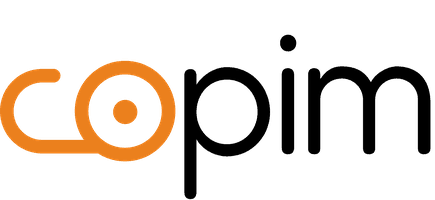‘F**k Business’ As Usual: Postdigital Politics in a Time of Pandemics III
 Tuesday, April 21, 2020 at 11:01AM
Tuesday, April 21, 2020 at 11:01AM In 'Postdigital Politics in a Time of Pandemics II', I argued that, whereas the nativist right have been successful in utilising communication technologies to transform the political landscape in recent years, the left has been conspicuously bad at turning its representations into actions that are compelling enough to make those in the mainstream of society want to constitute themselves as a group around issues such as community and the commons.
How are those of us who are on the left to challenge the contemporary takeover by the populist authoritarian right? Can we employ communication technologies for more progressive purposes that are attuned to today’s rapidly changing political landscape?
As we’ve seen, over the decades the left has found it difficult to devise collective forms of identification that are able to successfully counter the two main kinds of neoliberalism dominant in much of the West: the global neoliberalism of Barak Obama, David Cameron and Emmanuel Macron, which depends on a rule of law-based system of economic governance; and the libertarian neoliberalism (or authoritarian entrepreneurialism) associated with Donald Trump and Boris Johnson that wants to destroy this rules-based system, as embodied by the E.U., in order to generate new, disruptive business opportunities free from regulation.
 'Fuck business' was an aside made by Boris Johnson at a 2018 private reception
'Fuck business' was an aside made by Boris Johnson at a 2018 private reception
‘Fuck business’ here means fuck the existing business. It's a disruption that is accompanied by assaults on institutions such as universities, the civil service and the BBC that, from a liberal perspective, are designed to serve as a check on political power precisely by remaining separate from it. As early as 2014, for example, the New Frontiers Foundation thinktank directed by Johnson’s senior advisor, Dominic Cummings, was calling for rightwing politicians to challenge the standing of the BBC. This was with a view to creating a U.K. equivalent to Fox News in the U.S. that would not be constrained by rules such as those concerning broadcasting impartiality.
Of late, however, there have been signs that a practical and relevant left alternative, capable of capitalising on the possibilities created by the fourth great transformation in media technologies to shift toward more direct forms of democracy, may (just may) be beginning to emerge. As reasons for optimism we can point to phenomena such as the grassroots upsurge against the political establishment associated with Alexandria Ocasio-Cortez in the U.S. and her use of social media, the rise of the platform cooperativism movement, and calls for the monopolies of Google and Facebook to be broken up and for people and communities to control their own data. The latter idea is being explored in Barcelona by housing-activist-turned-city-major Ada Colau. Yet Barcelona is not the only city interested in engaging its population in mass participatory politics. Places as different as Porto Alegre in Brazil, Preston in the U.K. and Reykjavik in Iceland are experimenting with forms of municipal socialism, many aspects of which are made possible by online tools such as open consultation forums for citizens. More recently still, there have been the self-organised collective responses to the coronavirus epidemic. These include a hackerthon held in Germany in late March 2020 under the title #WirVsVirus (Us v. Virus). 42,869 participants collaborated remotely for 48 hours to come up with 800 different technological innovations for combating the virus. Popular themes included: ‘How can we organise neighbourhood assistance through helper platforms?’ (#58 projects); ‘How can food be provided to all citizens?’ (#50 projects); and ‘How can we support local businesses and protect them from insolvency?’ (#45 projects).
It’s with this kind of emphasis on engaging with postdigital technologies for purposes grounded in principles of social responsibility, solidarity and mutual care coupled to the collective redistribution of knowledge and resources that my collaborators and I align ourselves. And since a number of us are theorists, one of the issues we’re interested in as part of this is reimagining theory in the aftermath of the digital. In contrast to the worlds of music, film, TV and even politics, it seems to us that the transition from analogue to postdigital has really only just begun as far as many of the practices of the arts, humanities and social sciences are concerned. In this respect, one of the questions we’re raising with our work is: might exploring new modes of authorship, ownership and reproduction that are more in tune with this fourth great transformation in communications technology have the potential to lead to non-neoliberal – but (and this is extremely important) also non-liberal – ways of being and doing as theorists? Ways that are more consistent with the kind of progressive politics many theorists advocate, in their writings on community, collectivity and the commons especially, but don't necessarily perform themselves?
Over the last twenty years we’ve been involved in a number of bottom-up projects for the production and sharing of free resources, infrastructure and knowledge (objects). To briefly take my own trajectory just as an example: in 1999 Dave Boothroyd and I launched Culture Machine, one of the first open access journals of critical and cultural theory. In an attempt to avoid limiting the geopolitics of our work to that of the global North, this journal has recently been relaunched out of Mexico, under the editorship of Gabriela Méndez Cota and Rafico Ruiz, complete with a redesign by the hackerspace El Rancho Electrónico.
In 2008 Culture Machine became a founder-member of Open Humanities Press (OHP) Directed by myself and two colleagues based in Australia, Sigi Jöttkandt and David Ottina, this initiative involves multiple semi-autonomous, self-organising groups around the world, all of them operating in a non-rivalrous fashion to make works of contemporary theory available on a non-profit, free/gratis open access basis using Creative Commons licenses. Open Humanities Press currently has twenty-one journals, forty plus books distributed across nine book series, as well as experimental, libre texts such as those in its Liquid Books and Living Books About Life series.
OHP in turn became a founder member of the Radical Open Access Collective, an community of international presses, journals and other projects formed after the 2015 Radical Open Access conference. Now consisting of over sixty members, this collective seeks to build a progressive alternative ecosystem for publishing in the humanities and social sciences, based on experimenting with a diversity of non-profit, independent and scholar-led approaches.
Meanwhile, in the Centre for Postdigital Cultures (CPC) at Coventry University, we’re working on reinventing knowledge infastructures, especially those involved in the production and sharing of theory. Since its launch in 2018, the CPC has brought together many people involved in such ‘aesthetic’ practices. They include myself and Janneke Adema from OHP; Samuel Moore, who works with us as part of the Radical Open Access Collective; and Marcell Mars and Tomislav Medak from Public Library: Memory of the World.
The latest of these initiatives is the Community-led Open Publication Infrastructures for Monographs (COPIM) project, which emerged in 2019 out of a consortium of six open access presses called ScholarLed. An international partnership involving universities and libraries as well as infrastructure and technology providers, COPIM is designed to realign open access book publishing by moving it away from the surveillance capitalism model of competing commercial service providers. Its aim is to respond to the fact that companies such as Elsevier and Springer are increasingly looking to monetize not just academic content, but the ‘entire knowledge production workflow, from article submissions, to metrics to reputation management and global rankings’ and the related data extraction. COPIM represents an alternative, more horizontal and collaborative knowledge-sharing approach. Here the scholarly community collectively manages infrastructures and social systems for the common good in such a fashion as to enable a diversity of initiatives – including small, non-profit, independent and scholar-led presses – to become part of the publishing ecosystem.
('Postdigital Politics in a Time of Pandemics I: On the Commons and the Crisis of Representative Democracy' is available here)









Reader Comments